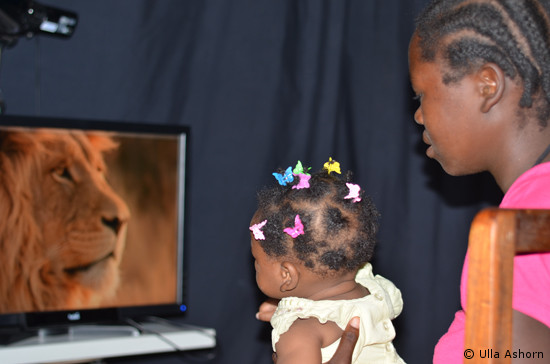Poverty, pre-term birth, and nutritional deficiencies, are serious risk factors for child development, affecting not only children’s physical growth, but also their cognitive, emotional, and social development. A review in the Lancet estimated that approximately 200 million children are not attaining their developmental potential in low- and middle-income counties (Walker et al., 2011). The concern is pressing, as there is a growing consensus amongst pediatricians and developmental psychologists that neurocognitive development during the first years of life is critical for children’s long-term psychological functioning, educational attainment, and socioeconomic success.
MiTrack project was conducted in rural Malawi. The pilot phase of the project (n = 39) examined the feasibility of eye tracking based assessment of infant cognitive function in low-resource settings. It was followed by a large-scale prospective study following 444 infants from birth up to 18 months of age in order to study the associations between the child’s social and cognitive development, nutritional status, growth pattern, gestational age at birth, and rearing environment. The project aimed at: i) developing valid methods to study early social and cognitive development in low-resource settings, and ii) facilitate early identification of serious risk factors for child development and interventions to promote infants’ physical and mental health.
The main results have been published in Juha Pyykkö’s PhD thesis.
This project was done in collaboration with University of Malawi. The project had funding from Tampere University Hospital Medical foundation, the Tampere Association of Medical Doctors, the European Research Council, Nutriset S.A.S., and Food and Nutrition Technical Assistance III Project (FANTA) at FHI360.

